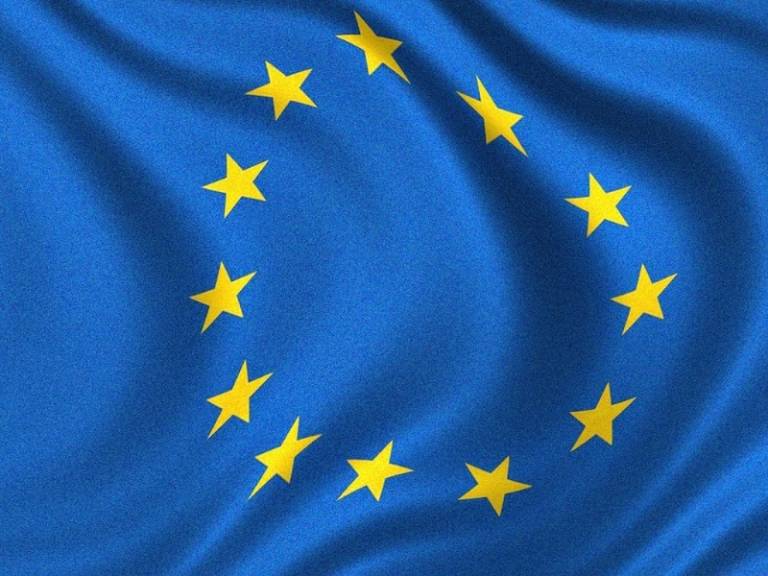Questioning the ethics of Euroscepticism
6 November 2017
In a UCL Lunch Hour Lecture delivered last week, Professor George Letsas, a specialist in the philosophy of law and human rights from UCL Laws, set out some of the ethical underpinnings of the Brexit debate.

The lecture formed part of UCL's wider programme of being a forum where the most critical issues facing society can be aired and discussed. As such, audience members from both sides of the Brexit debate - some who voted leave, others who voted remain - asked questions of the speaker. These stimulated discussions about the benefits or otherwise of supranational European organisations, the way the referendum process was conducted, and whether there would be any possibility of its review.
Key to Professor Letsas' views on Euroscepticism and Brexit is the importance of looking at the issue from an ethical perspective. This perspective is different from much of the debate surrounding the lead-up to the referendum, where both sides of the debate focused on issues of identity (that is, whether voters felt European or not),
and the cost-benefit or economic rationales behind leaving versus staying. The lecture, in this respect, represented an effort to bring more and diverse ideas to the ongoing discussion about the UK's departure from the EU.
In looking at what constitutes whether Euroscepticism is unethical, Professor Letsas clarified that he was only interested in looking at actions and conduct - both of institutions (like government), and people (for example, how people vote). He defined unethical conduct as 'conduct which is in violation of moral principles that all reasonable people recognise, which leads to wrongdoing or injustice.'
Professor Letsas, who supports European supranational institutions like the EU, believes that Euroscepticism may be unethical in three key ways. Firstly, because of the potential for freeriding. Professor Letsas sees supranational institutions in Europe as producing public goods that everyone in Europe benefits from, including peace, stability and the rule of law on the Continent. Having a share of this necessarily involves some concession of sovereignty, and in undermining European supranational institutions, the UK may be taking the benefit of these public goods without contributing to the environment that helped create them.
Secondly, Euroscepticism may be unethical because it represents the failure to take part in a cooperative scheme that works to protect others. Participation in the EU gives member states and their citizens protection against threats presented by the globalised economy - for example, pushes towards deregulation and the lowering of consumer protections - that would not be otherwise easily resisted by a single state. The reason the EU can do this is the size of the market it represents - without which, nation states would be forced to bargain against these pressures alone. Professor Letsas argued that for a country to withdraw from these institutions and so forfeit the protection offered to its citizens would be unethical because of how it renders them vulnerable.
Thirdly, Professor Letsas set out that Euroscepticism may be unethical because it undermines the legitimate expectations of people who moved countries in Europe on the assumption that free movement and all the rights conferred with it would continue. He said that these people, many of whom are long-settled and have developed livelihoods, were used as bargaining chips in the negotiation, without looking at the question of whether or not it would be just to undermine their expectations.
Professor Letsas ended his talk by consolidating his emphasis on ethical perspectives in the debate over Brexit. He sees this as an informed way of considering the ongoing conversation apart from economic considerations and questions of identity.
UCL's lunch hour lectures are a place where academics consider current affairs, display ground breaking-research and put forward new perspectives. To take part in the next conversation, see the schedule below.
Links
Image
- European Union flag (credit: Yanni Koutsomitis, source: Flickr)
 Close
Close

